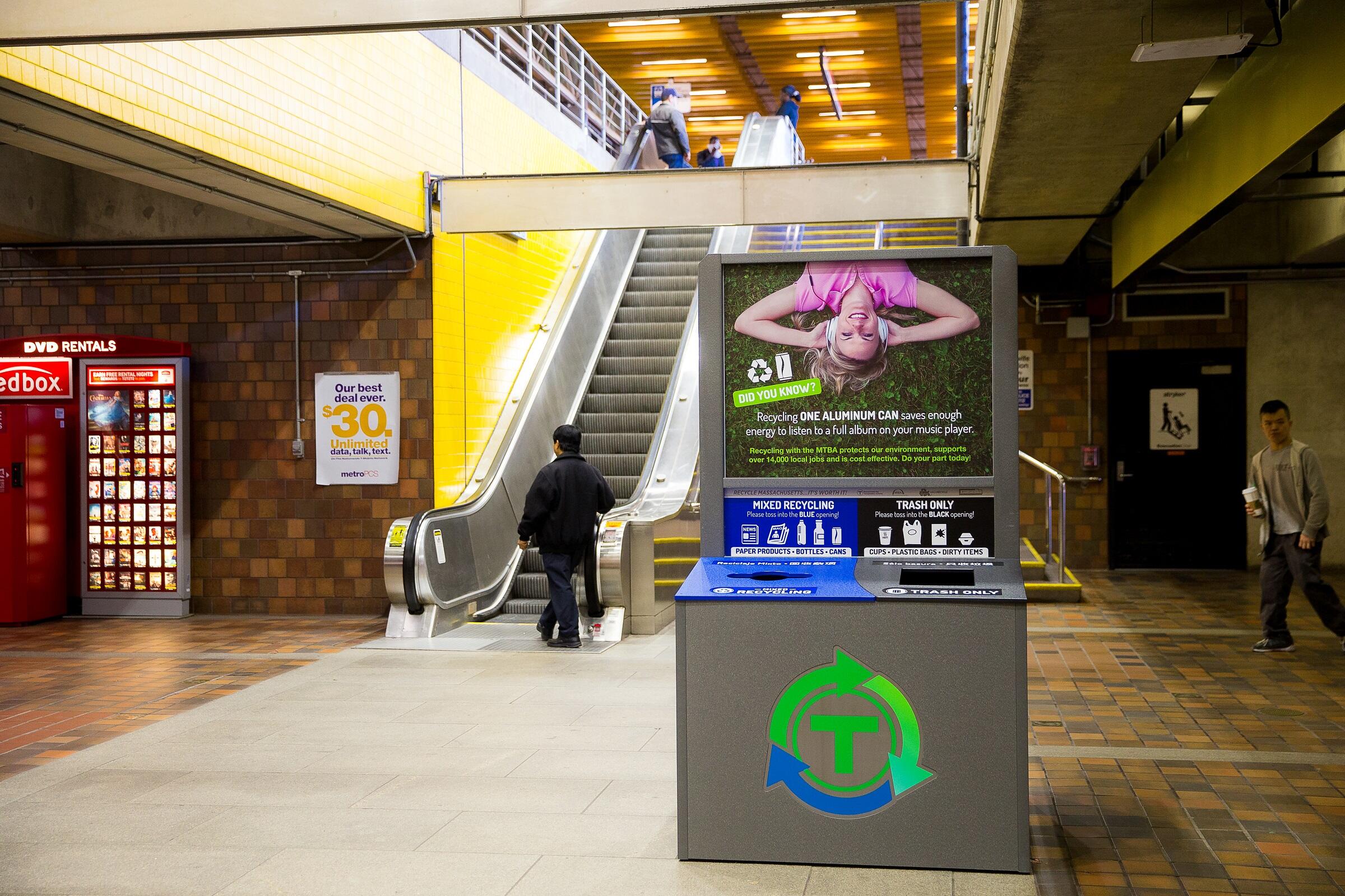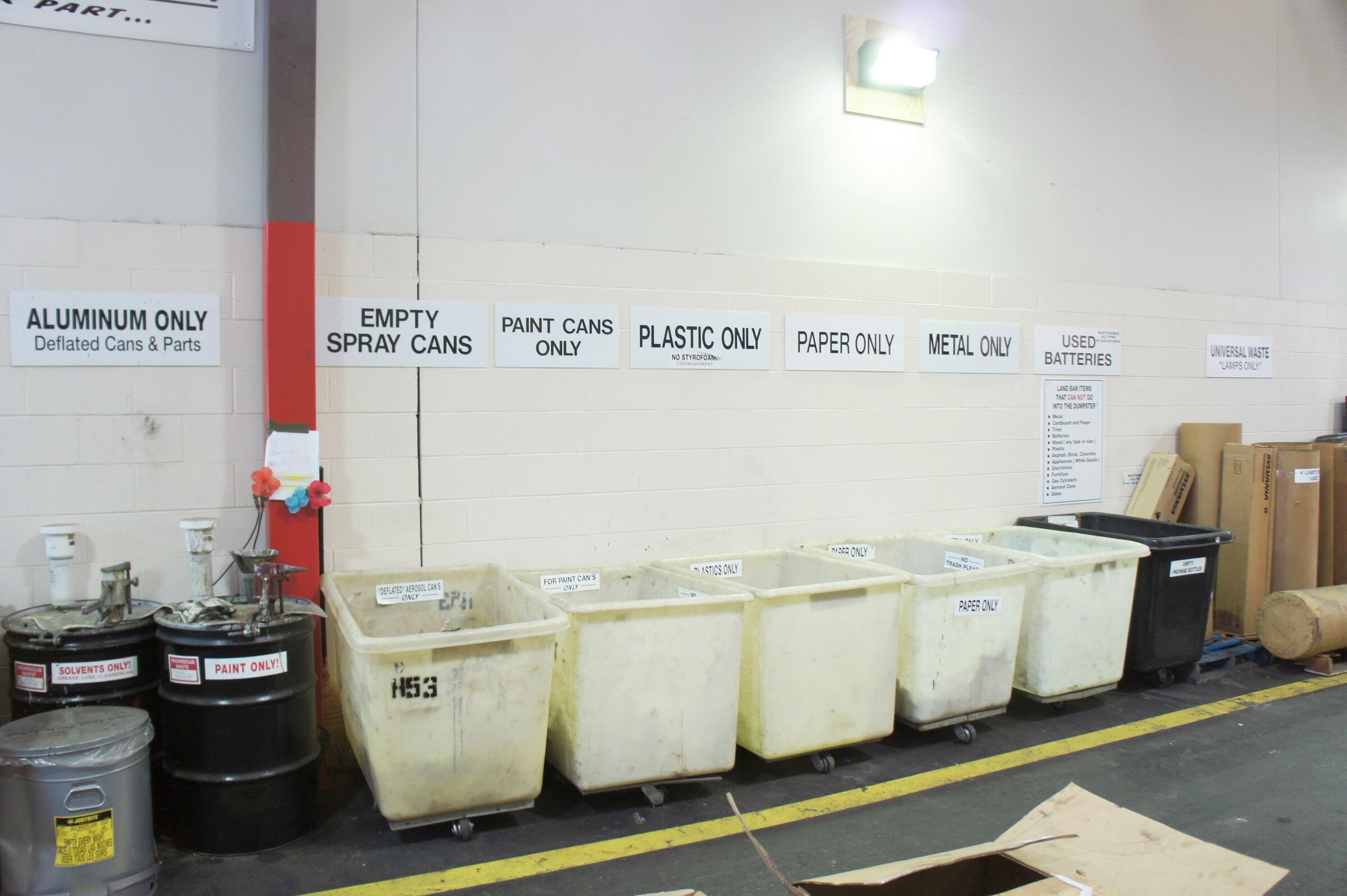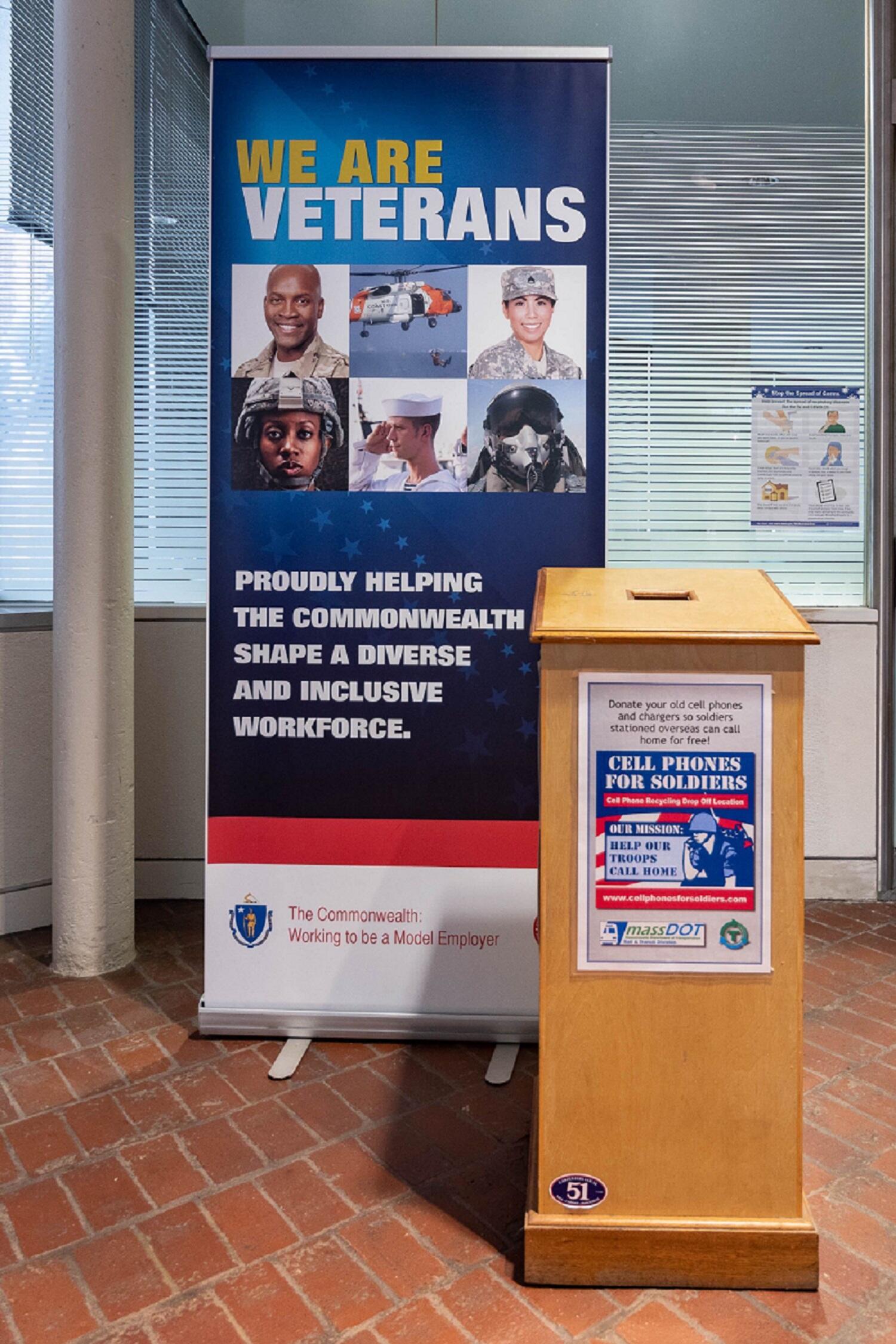Waste Management

There are two main sources of waste at the MBTA:
- Our stations and vehicles
- Our facilities and construction sites
The MBTA’s goal is to minimize waste from these sources and recycle as much of this material as possible. By managing our waste, we can avoid filling landfills, decrease pollution, and reduce life-cycle energy and raw material use.
Station Recycling
More than 3,500 tons of newspaper have been recycled from the bins located throughout MBTA stations. As people get more of their news via digital media and less from hard copies of newspapers, recycling levels from stations have dropped significantly.
In a partnership with the City of Cambridge, single-stream recycling bins are available at Red Line stations in Cambridge so riders can conveniently recycle plastic bottles, food containers, and more while commuting.
Facility Waste Management

MBTA offices and maintenance facilities generate large volumes of paper, cardboard, cans, bottles and other materials that are handled by our recycling programs. Our maintenance facilities recycle all waste, including metal, batteries, glass, cardboard, and electronics.
While it's critical to avoid disposal of materials that could end up in a landfill or trash incinerator, proper waste management is particularly important for hazardous waste.
Hazardous Waste
Hazardous waste levels have increased, as many construction and system maintenance projects are underway.
- Rail ties, ballast, soil, and other waste products are disposed of properly or recycled or reused whenever possible.
- Waste oil is recycled and sold to save money and reduce environmental impacts.
- Leftover aerosol in cans is released into 55-gallon drums for proper disposal, and the cans are recycled.
- Freon from air conditioners on our vehicles is captured and reused.
- Batteries are returned to manufacturers to ensure proper recycling.
- Fluorescent light bulbs are replaced with high energy efficient lighting (such as LED’s) and the old lightbulbs are recycled.
- All bus tires are leased from the manufacturers, and returned to be recycled after a certain number of miles
- All electrical equipment (e.g., computers, printers, monitors as well as air conditioners and other pieces of equipment with a plug) are segregated and taken away as electronic waste.
- Our rights of way and parking lots are often targeted for illegal dumping – particularly electronic waste and televisions that people have a difficult time disposing of – are recycled and properly disposed of (often at a cost to the MBTA.)
The MBTA continues to improve our waste streams by finding new ways to reduce and reuse waste products. We are investing in waste and recycling units at operating facilities and increasing incentive with improved waste management contracts.
Cell Phone and Electronic Waste Recycling

Since April 2012, the MBTA has been working with Cell Phones for Soldiers (CPFS). CPFS collects old cell phones and raises funds to provide free phone time for soldiers stationed overseas. The program was started in 2004 by Robbie and Brittany Bergquist (then ages 12 and 14) from Norwell, MA.
Most cell phones contain precious metals that can be recycled and resold. Recycling allows manufacturers to save energy and resources that would otherwise be used for mining new materials. Recycling also keeps these materials out of landfills, where they can pollute the air and contaminate soil and drinking water.
Cell Phones for Soldiers monetizes those recycled materials and uses the funds to provide international calling cards to military personnel stationed overseas.
In the first year, the MBTA and MassDOT recycled more than 2500 cell phones and more than 1800 chargers. Since partnering with CPFS, the MBTA has collected close to 6,000 phones and provided approximately 21,000 one-hour phone cards for soldiers overseas.
Cell Phones for Soldiers boxes are currently located at 10 Park Plaza and Back Bay station.
Building a Better T
As part of our $9.6 billion, 5-year capital investment plan, we're renovating stations, modernizing fare collection systems, upgrading services for our buses, subways, and ferries, and improving the accessibility of the entire system.
Share Your Ideas
If you have ideas or suggestions for making the MBTA more environmentally sustainable, please email environmental@mbta.com or call 617-222-4376.
Building a Better T
As part of our $9.6 billion, 5-year capital investment plan, we're renovating stations, modernizing fare collection systems, upgrading services for our buses, subways, and ferries, and improving the accessibility of the entire system.
Share Your Ideas
If you have ideas or suggestions for making the MBTA more environmentally sustainable, please email environmental@mbta.com or call 617-222-4376.
